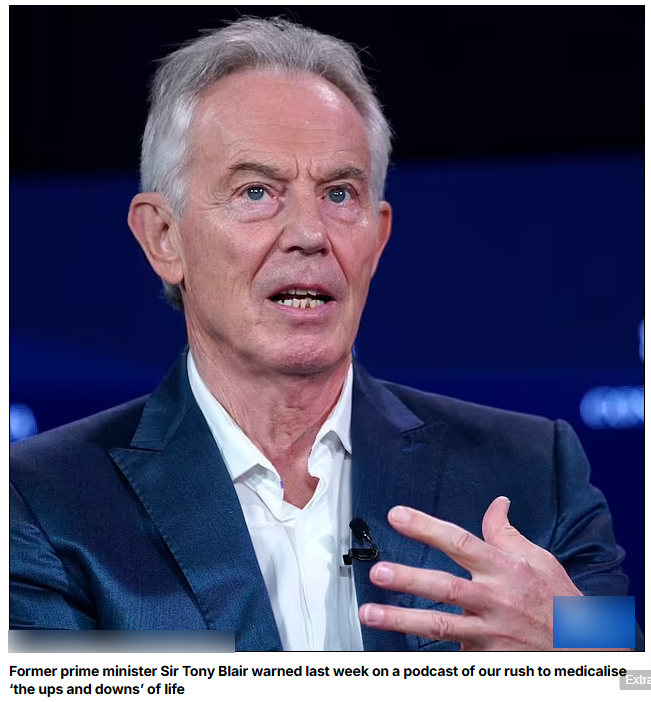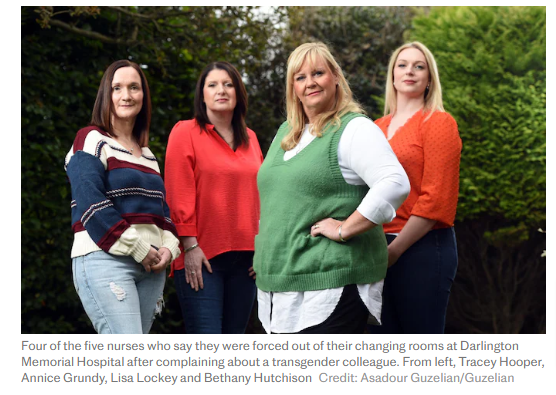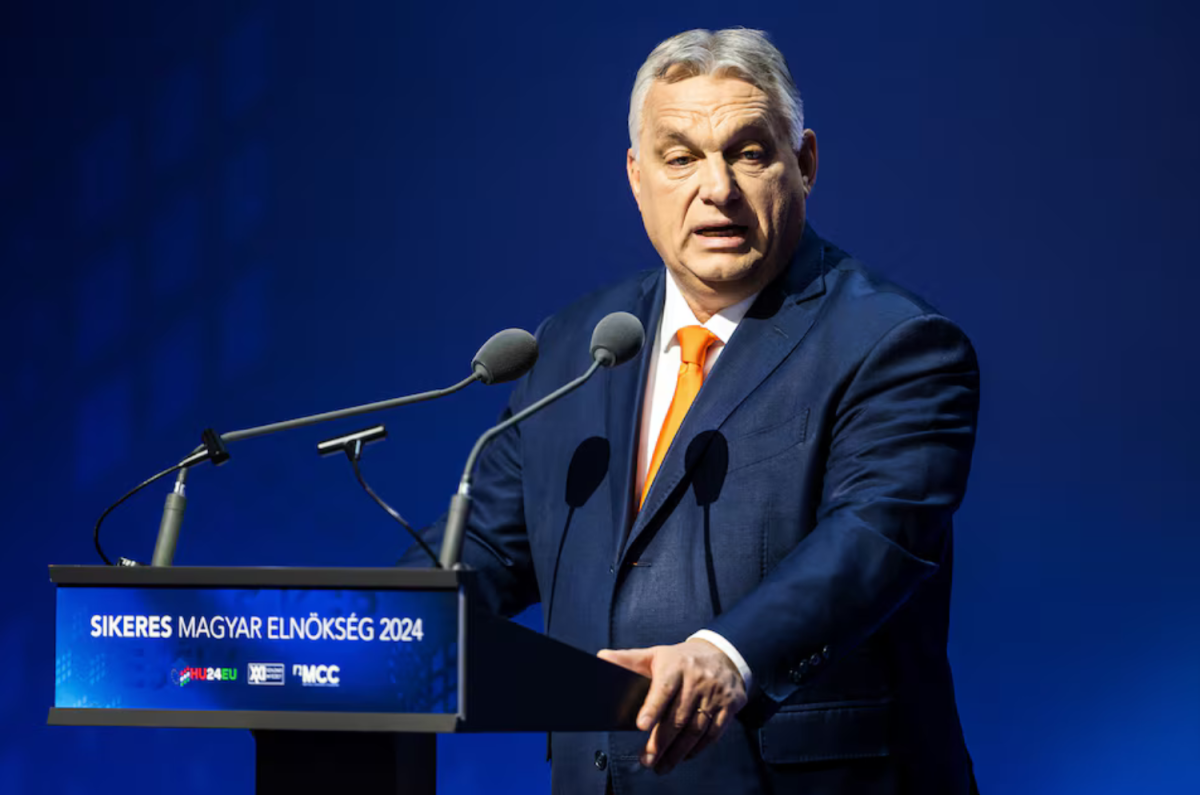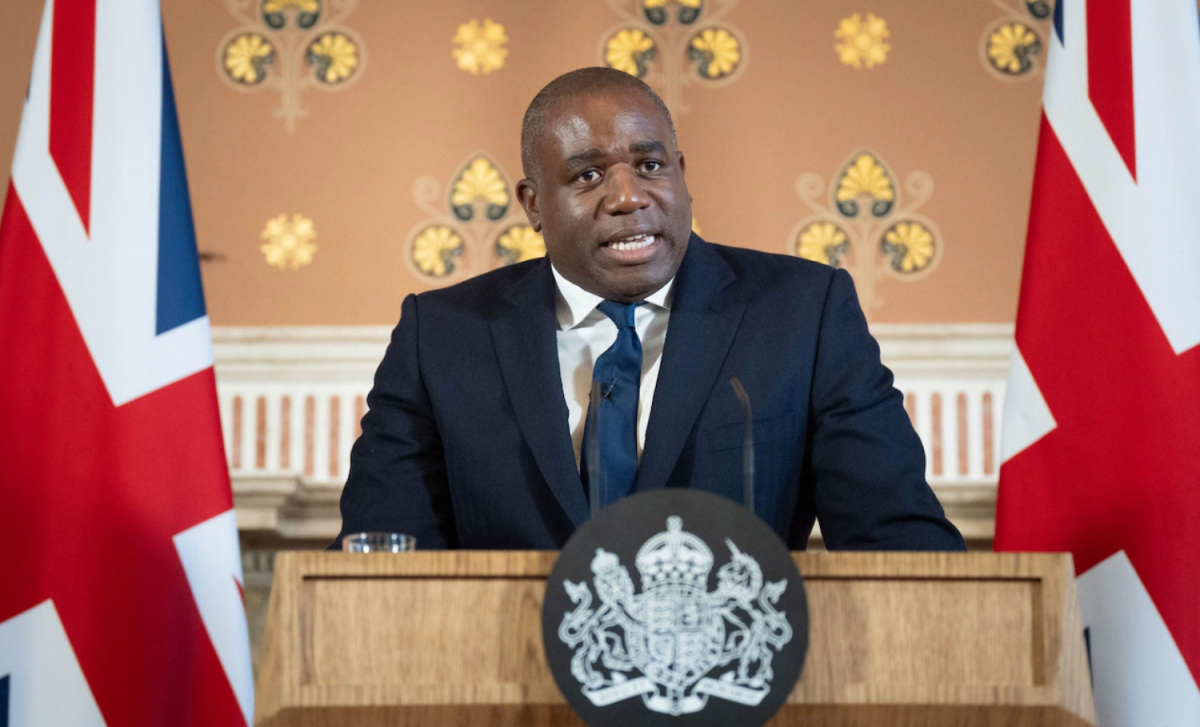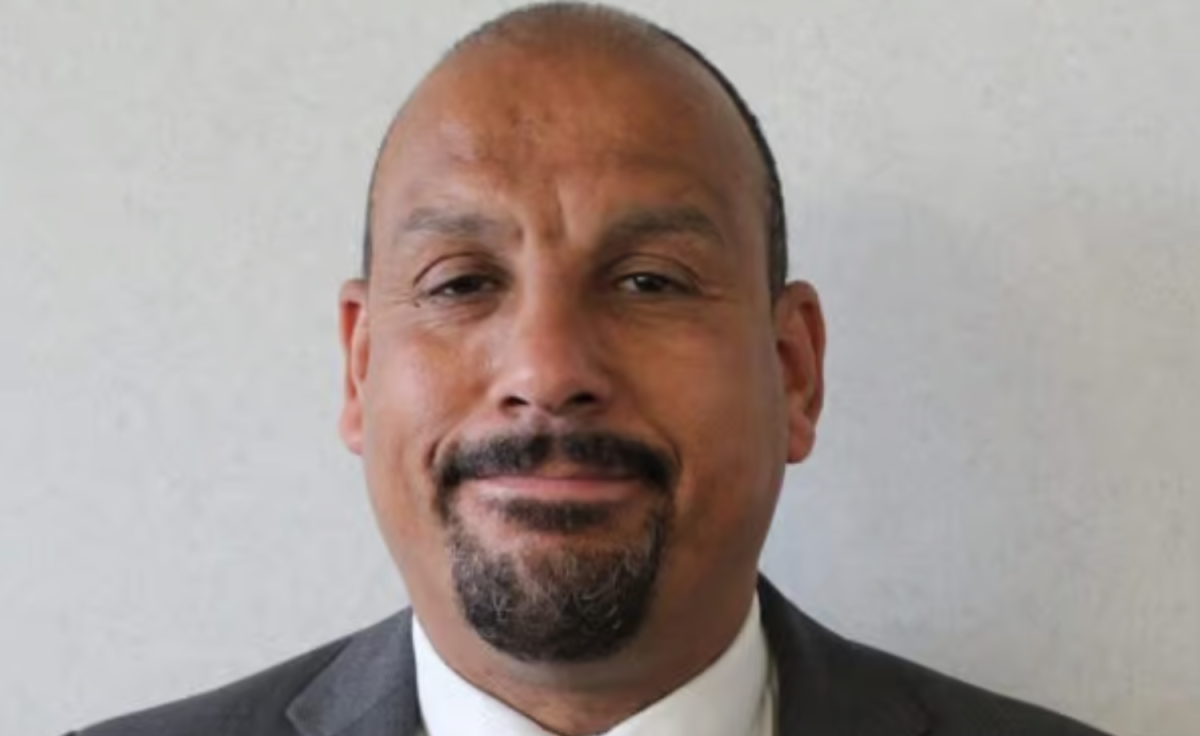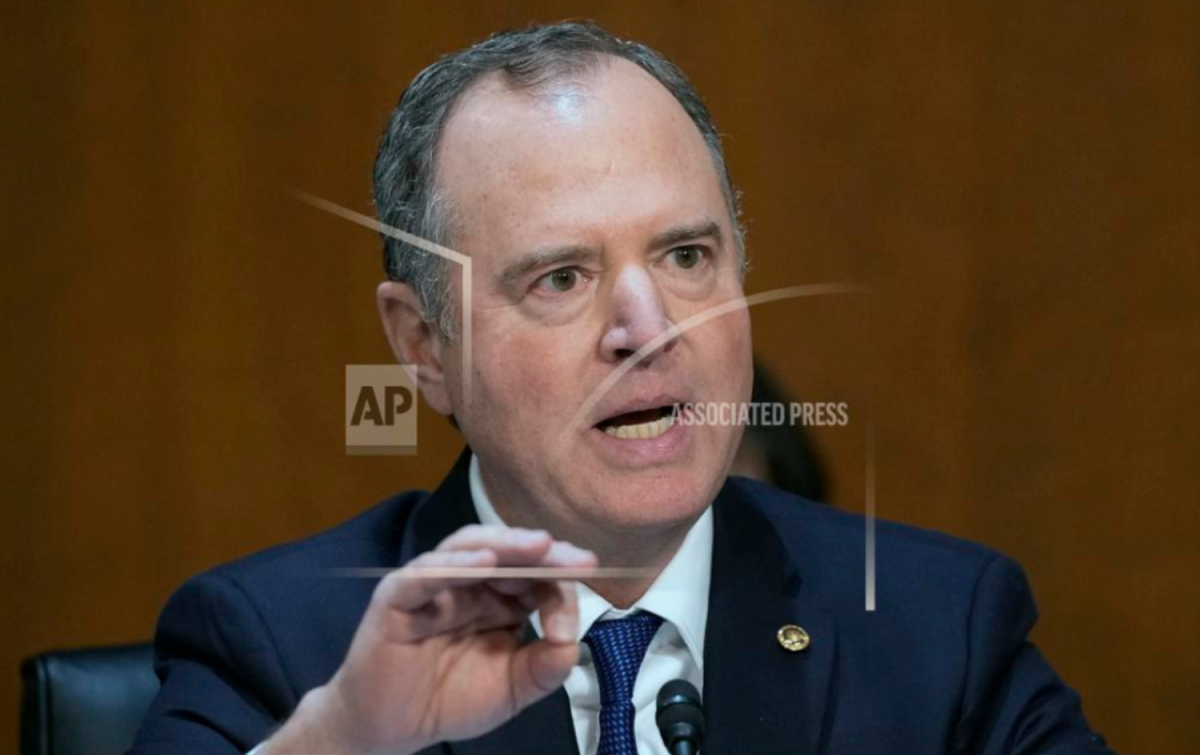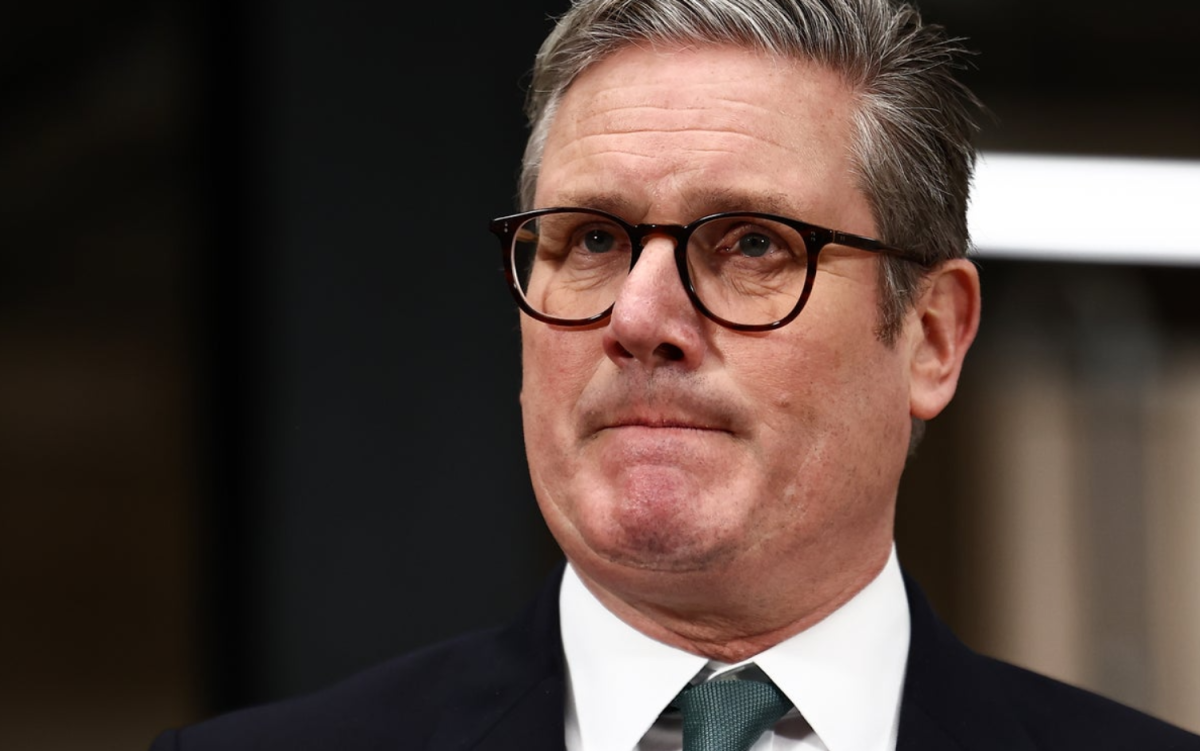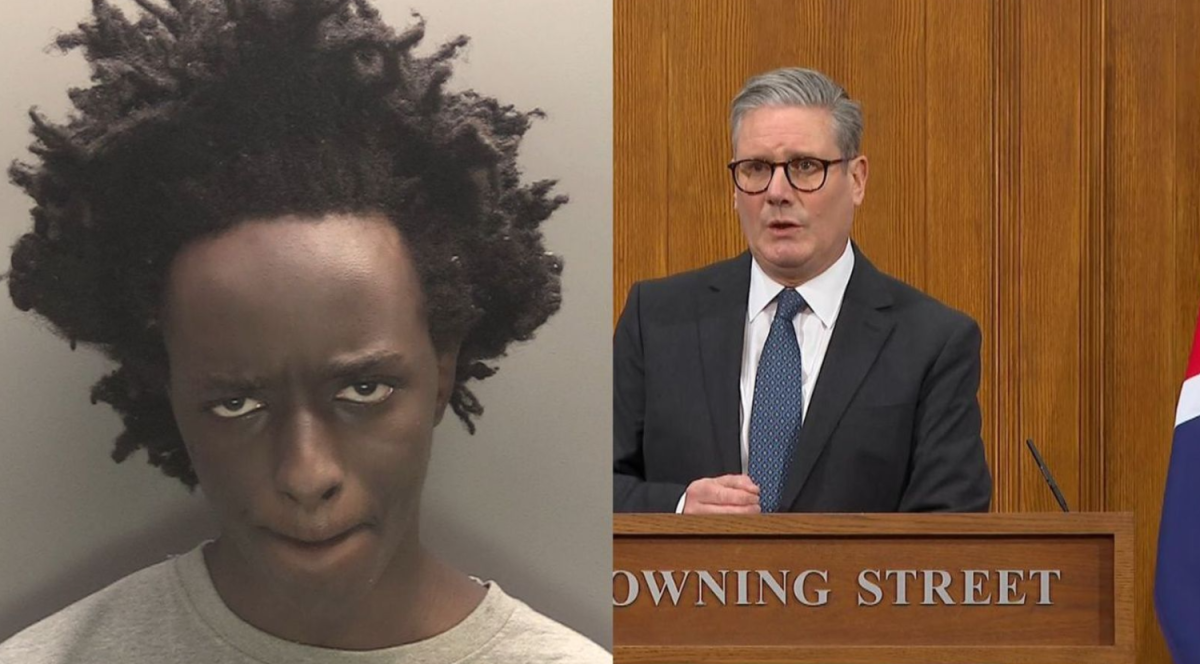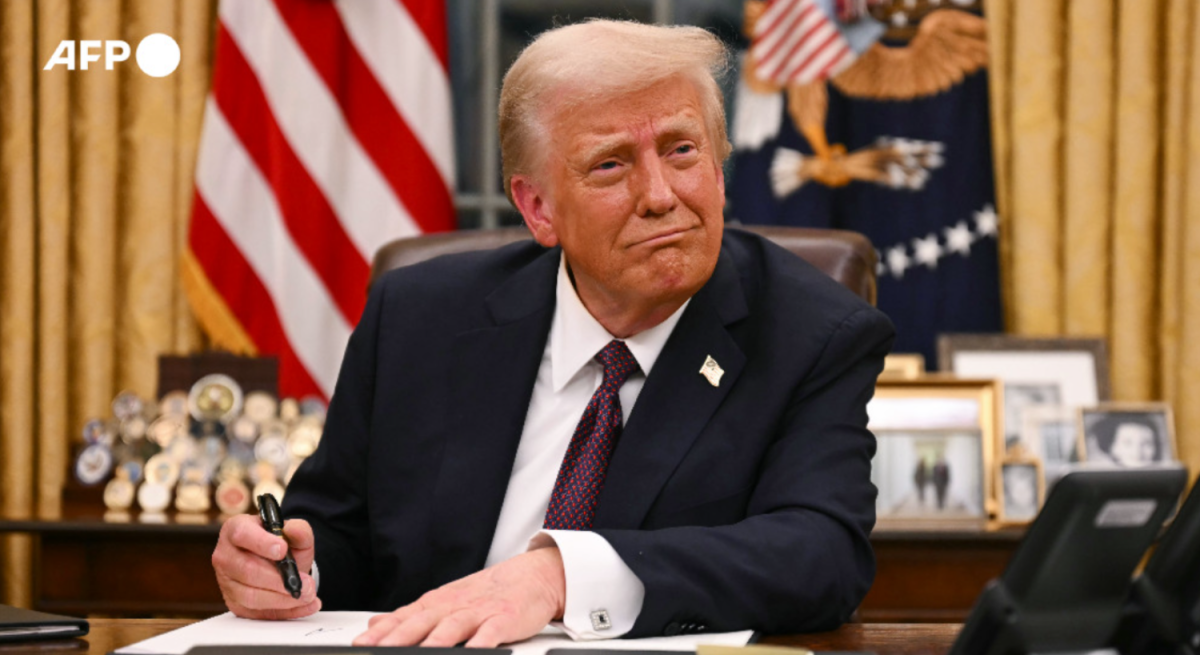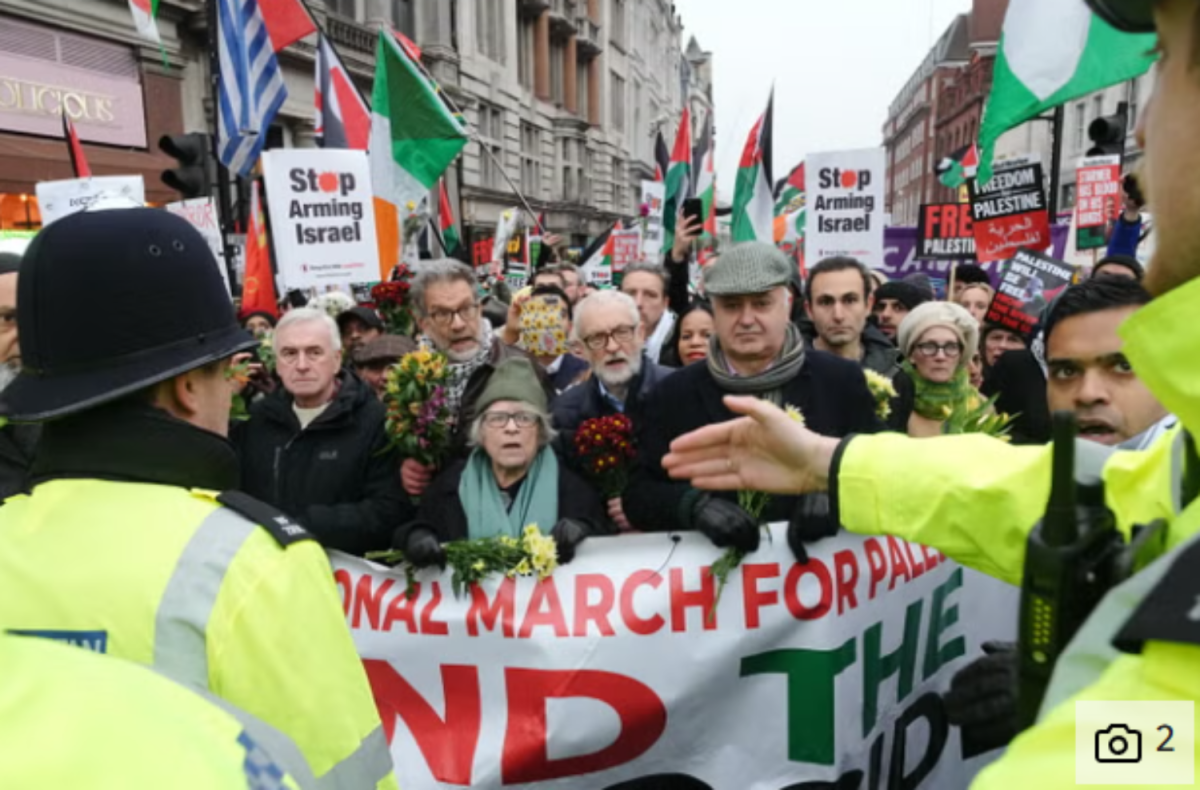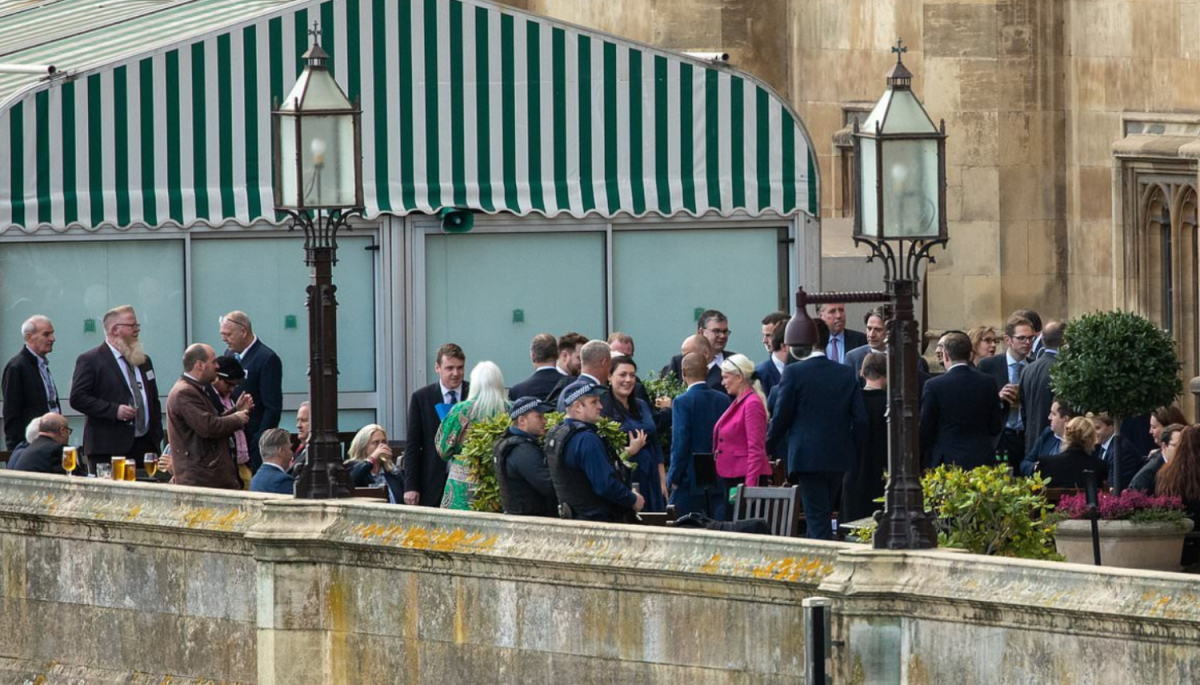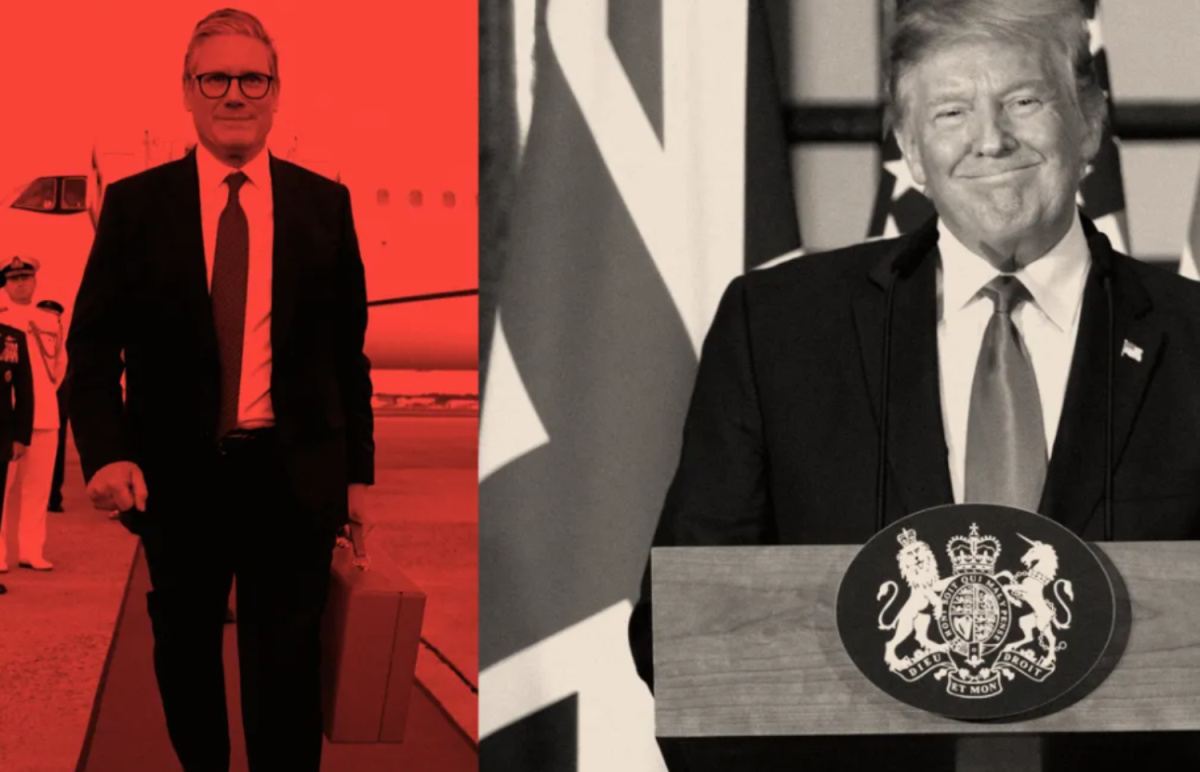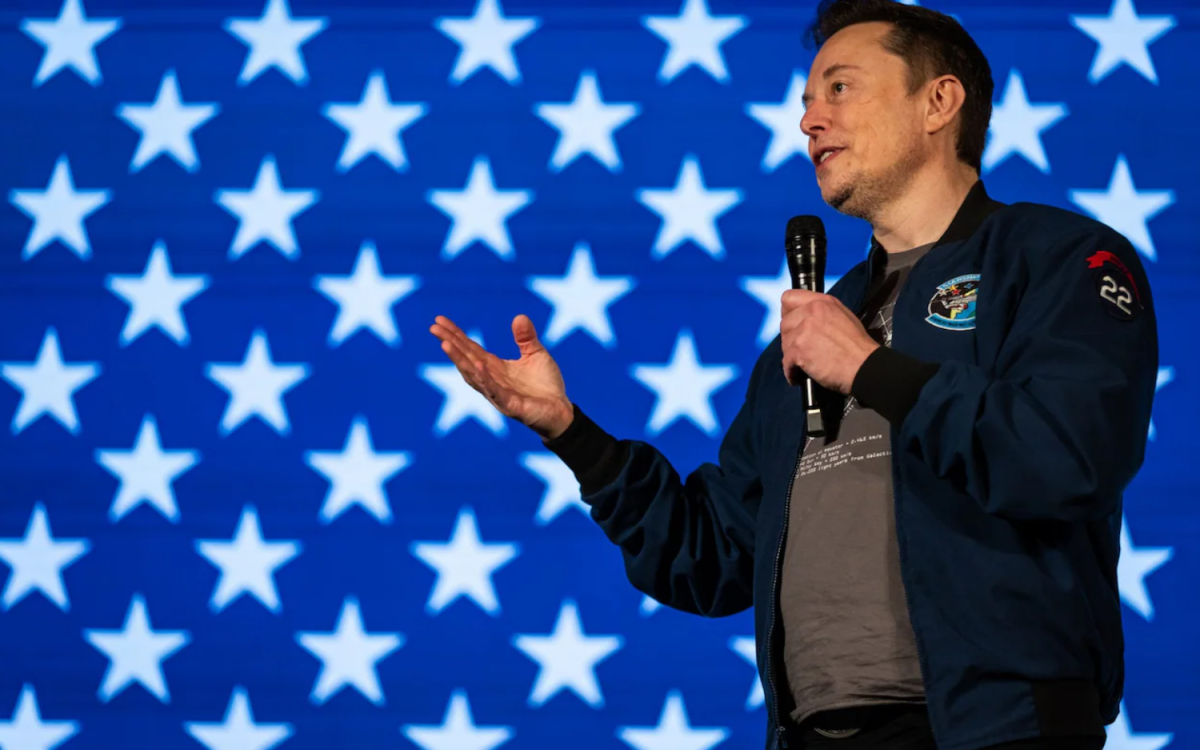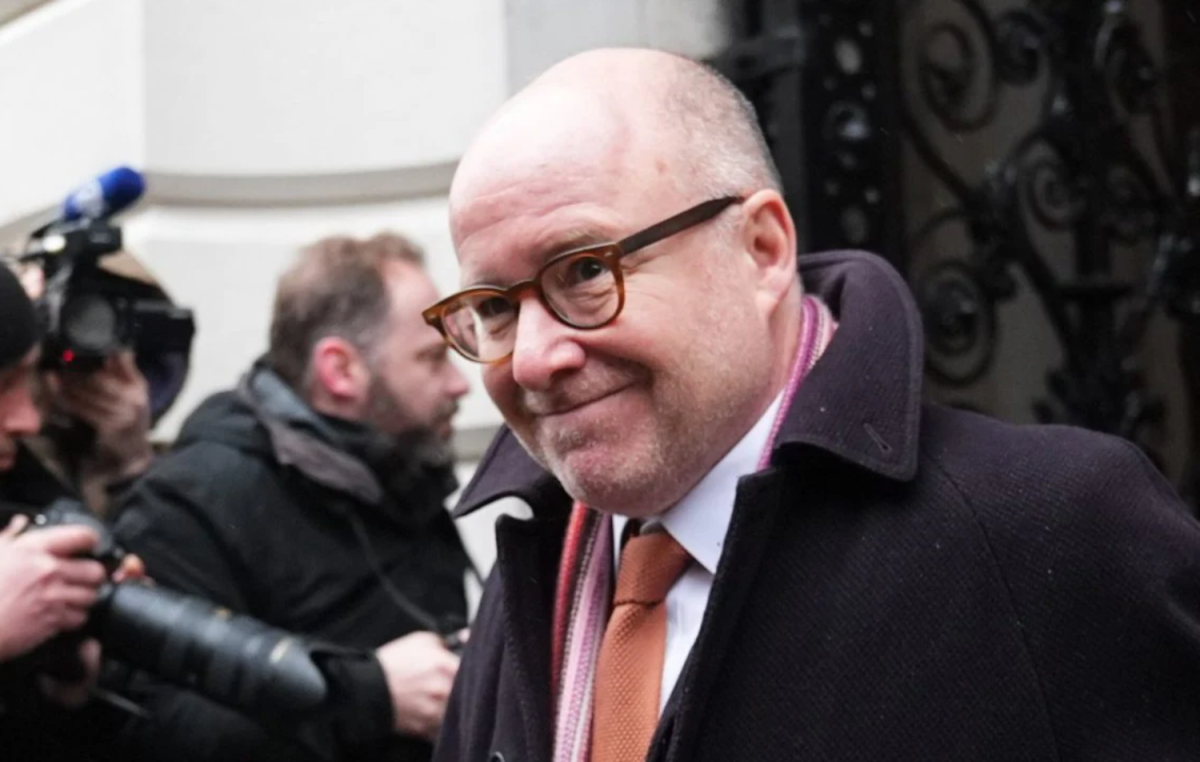-
Posts
10,016 -
Joined
-
Last visited
Content Type
Events
Forums
Downloads
Quizzes
Gallery
Blogs
Everything posted by Social Media
-
Britain faces a mental health crisis, but not in the way most people imagine. While genuine mental health conditions remain a pressing issue, a growing problem lies in the increasing number of individuals self-diagnosing with conditions such as depression, anxiety, OCD, PTSD, or neurodevelopmental disorders like autism and ADHD. This trend is diverting precious resources away from those truly in need. “The golden age of openness about mental health has turned into something else entirely,” notes Dame Clare Gerada, former president of the Royal College of General Practitioners. She warns that Britain has developed a tendency to label normal life challenges as mental health conditions. "People would rather have a label than consider why their life might be challenging or where it could have gone wrong," she adds. This shift has created a situation where mental illness is no longer stigmatized but, alarmingly, is often worn as a badge of honour. As Dr. Max, a consultant psychiatrist, explains, "It’s starting to feel like mental illness has become something people cling to as a way of explaining the normal difficulties life throws at us.” Former Prime Minister Sir Tony Blair recently weighed in on the issue, expressing concerns about the rush to medicalize life’s natural ups and downs. His words, echoed by mental health professionals, highlight the danger of self-diagnosis and the pressure on doctors to validate these unfounded concerns. The impact of this phenomenon on the healthcare system is profound. As Dr. Max shares, psychiatrists increasingly spend their time explaining to patients that they do not have mental illnesses. "I thought no one wanted to be mentally ill," one psychiatrist remarked at a recent meeting. "It turns out everyone does." This problem is compounded by a growing resistance from patients when told they are mentally well. “When I tell someone they don’t have depression, they often look at me confused and reply, ‘But I’m not happy,’” says Dr. Max. The expectation of constant happiness, as if life were meant to be a perpetual state of euphoria, has skewed perceptions of what constitutes mental illness. In some cases, doctors succumb to patient demands, providing a diagnosis to placate them. This can lead to unintended consequences, such as individuals being signed off work for dubious reasons, only to develop genuine mental health issues through prolonged inactivity, isolation, and substance use. “Some people end up at home, watching TV, playing video games, and smoking cannabis. And guess what? They eventually do develop real mental health problems,” Dr. Max laments. The rise of misdiagnosis and misplaced self-diagnosis risks trivializing the struggles of those with legitimate mental illnesses. It also perpetuates the misconception that life should always be positive and devoid of hardship. As Dr. Max emphasizes, “Life is rife with frustration, disappointment, and uncertainties. These are not illnesses; they are part of the human experience.” While the destigmatization of mental health discussions is a positive step, it’s crucial to strike a balance. The narrative must shift to emphasize resilience and coping mechanisms rather than labeling normal emotional experiences as disorders. "Yes, let’s keep talking," Dr. Max concludes, "but let’s expand the conversation to reflect the realities of life and the tools we need to navigate it. We owe it to those truly in need of mental health care to ensure they are not overlooked in a system overwhelmed by the ‘worried well.’” The solution lies not in silencing the conversation but in refining it—focusing on building emotional resilience and differentiating between mental illness and the challenges inherent to life. Only then can we ensure that help reaches those who need it most. Based on a report by Daily Mail 2025-01-22
-
A transgender nurse has been accused of intimidating female colleagues who launched a sexual harassment case against their employer after being required to share a changing room with her. The allegations were brought to light during a preliminary hearing at Newcastle Employment Tribunal. The nurse, known as Rose, was assigned male at birth but now lives as a woman. Despite this, it was noted during the hearing that Rose does not possess a gender recognition certificate, which legally defines her as male under current UK law. Female nurses working for the County Durham and Darlington NHS Foundation Trust have claimed they felt "intimidated" and "stared at" by Rose following the commencement of their legal action. Bruno Quintavalle, representing the nurses, argued that Rose had engaged in deliberate and confrontational behavior at the hospital since the legal proceedings began. He stated: “It is the claimants’ position … that far from being reduced to a state of fear and concern about his psychological or physical integrity, Rose has responded to the initiation of proceedings by trying to intimidate the nurses. By engaging in confrontational behavior in the hospital in situations where he would not usually be expected to be. This suggests that far from being in a state of shock, Rose is fully on top of things.” Bethany Hutchison, president of the Darlington Nurses Union, supported these claims in a witness statement, saying that Rose’s actions had made the nurses feel increasingly uncomfortable. Hutchison noted that Rose, who works as a theatre nurse, had begun frequenting the day surgery ward, where the complainants worked, much more often than before. “Rose’s frequent visits show there is no hostility or intimidation against Rose,” Hutchison stated. “Rather, it is Rose who is apparently seeking to intimidate us with those unnecessary visits.” Another nurse, Karen Danson, provided a statement detailing her own experiences upon returning to work after a period of medical leave. “Since I returned to work, I have only seen Rose a couple times in the canteen,” Danson said. “On those occasions, Rose is always staring and trying to intimidate us all.” Simon Cheetham KC, representing the NHS trust, sought an order to prevent Rose’s surname from being reported, citing privacy rights under the European Convention on Human Rights and potential risks of harm. Cheetham did not challenge the nurses’ allegations of intimidation during the hearing. However, Mr. Quintavalle opposed the application, arguing that granting anonymity would hinder the claimants’ ability to share their experiences. Sharon Langridge, the employment judge presiding over the preliminary hearing, has reserved her decision on the application for anonymity. She confirmed that her written ruling would be issued within the next couple of weeks. The tribunal is set to begin on June 16 and conclude on July 4, during which the claims of sexual discrimination and harassment against the NHS trust will be fully examined. Based on a report by Daily Telegraph 2025-01-22
-
Hungarian Prime Minister Viktor Orban has suggested that Donald Trump's presidency could catalyze a sweeping right-wing political transformation across Europe. Speaking at a conference on Monday, Orban expressed his optimism about the influence of a new U.S. administration on European politics and declared his intention to spearhead what he described as an offensive to "occupy Brussels." "The Sun will shine differently in Brussels," Orban proclaimed, emphasizing the potential for significant political change. He referenced the arrival of a "new President in the US" and the presence of a "large faction of Patriots in Brussels" as key factors that would energize the movement. "So the great attack can start. Hereby I launch the second phase of the offensive that aims to occupy Brussels," Orban stated. The Hungarian leader has been a vocal supporter of Donald Trump and a frequent critic of the European Union, often opposing its policies on issues such as migration and governance. Orban's rhetoric reflects his broader ambition to bolster nationalist and right-wing political forces within Europe, challenging the influence of EU institutions in Brussels. Orban’s remarks come amid growing divisions within the EU, where debates over sovereignty, immigration, and cultural identity have fueled the rise of nationalist movements in several member states. His comments suggest a renewed push to align with like-minded political actors and amplify their influence on the European stage. While Orban's statements are likely to resonate with his supporters, they may also intensify tensions between Hungary and EU leaders, who have often criticized his government for undermining democratic norms and the rule of law. The Hungarian Prime Minister's bold declaration underscores his vision of a politically redefined Europe, one shaped by the resurgence of right-wing ideals and resistance to what he views as the overreach of Brussels. Based on a report by Reuters 2025-01-22
-
In a recent interview on CBS' "Face the Nation," President-elect Donald Trump's incoming national security adviser, Mike Waltz, made a definitive statement regarding the situation in Gaza. He emphasized the unwavering stance of the Trump administration towards Hamas and their governance in the region. "Hamas will never govern Gaza. That is completely unacceptable," Waltz declared, signaling a strong U.S. support for Israel's actions should Hamas violate the ceasefire-for-hostages agreement. Waltz underscored that the Trump administration has conveyed this position clearly to Israeli Prime Minister Benjamin Netanyahu. "I want the Israeli people to hear me loud and clear," he asserted. "If Hamas reneges on this deal and Hamas backs out, moves the goalpost, what have you, we will support Israel in doing what it has to do." His remarks reflect a firm commitment to Israel's security and a zero-tolerance policy for any deviation by Hamas from the agreed terms. Moreover, Waltz expressed optimism about the Trump administration's potential to further the Abraham Accords, particularly by facilitating a normalization agreement between Israel and Saudi Arabia. This goal aligns with the broader Middle East peace strategy that the administration seeks to advance. Based on a report by Reuters 2025-01-22
-
In a surprising turn, Foreign Secretary David Lammy has offered high praise for President-elect Donald Trump, a stark contrast to his previous harsh criticisms. Lammy, who once referred to Trump as a “woman-hating, neo-Nazi sympathising sociopath” in 2018, now describes him as “incredibly graceful,” “generous,” and “very, very friendly.” Lammy’s shift in tone comes as the UK government seeks to strengthen ties with the incoming US administration. Sir Keir Starmer is expected to visit Washington, D.C., to meet with Trump in the coming weeks, with efforts to secure a new trade deal high on the agenda. A “mini-Cabinet” of senior ministers has been established to strategize ways to persuade Trump to reach an agreement favorable to the UK. When questioned on BBC Radio 4’s Today programme about his altered perspective on Trump, Lammy emphasized a pragmatic approach. “The approach has got to be progressive realism,” he said. “You meet the world as it is, not as you would wish it to be.” Lammy acknowledged the broad support Trump enjoys globally, noting a recent survey indicating that 70 percent of the world welcomes Trump’s return to power. He pointed out the increase in support for Trump among various demographics in the US, including African American and Latino communities, and younger voters. “We have to reckon with that truth,” Lammy concluded, signaling a recognition of Trump’s enduring appeal. The UK government is hopeful that past criticisms from senior Labour figures won’t hinder the ongoing efforts to foster a strong UK-US relationship under Trump’s leadership. Based on a report by Daily Telegraph 2025-01-22
-
The trial of Ricky Jones, a suspended Labour councillor facing accusations of inciting violence during last summer’s riots, has been postponed until August. Jones, 57, is charged with encouraging violent disorder following a speech delivered to a crowd in Walthamstow on August 7 last year. His words, captured on video, gained widespread attention online as he spoke out against "disgusting Nazi fascists," declaring, "we need to cut their throats and get rid of them." Originally, Jones was scheduled to stand trial this week at Snaresbrook Crown Court. However, a decision made last week has now deferred the trial until August 11. This delay follows Jones’ suspension from the Labour Party after his participation in the anti-fascist protest on Hoe Street, Walthamstow, where the controversial speech was made. In court last September, Jones pleaded not guilty to the charge of encouraging violent disorder. Initially remanded in custody, he has since been released on bail. Chief Crown Prosecutor Jaswant Narwal of CPS London North stated at the time the charges were announced, "Jones was filmed addressing a crowd in Walthamstow on Wednesday 7 August during which he appeared to make remarks and a gesture to encourage others to act violently towards far-right protestors." Narwal emphasized the importance of preserving the integrity of the judicial process, reminding the public, "We remind all concerned that criminal proceedings are active and that he has the right to a fair trial. It is extremely important that there should be no reporting, commentary, or sharing of information online which could in any way prejudice these proceedings." As the new trial date approaches, the case remains a focal point for public and media attention, highlighting the tensions surrounding the events of last summer and the ongoing repercussions for those involved. Based on a report by the Standard 2025-01-22
-
A daycare center has been firebombed and scrawled with graffiti reading “f— the Jews” in the latest antisemitic attack in Sydney, Australia. Acting New South Wales Police Commissioner Peter Thurtell announced that Strike Force Pearl, a unit established to investigate antisemitic crimes in Sydney, will receive additional resources immediately. “We already have significant resources, but incidents like this highlight the need for us to continue bolstering our efforts to identify, arrest, and bring these offenders to justice,” Thurtell stated. He further condemned the perpetrators, asserting, "These are criminals who aim to disrupt our society, and we will ensure they face the consequences." New South Wales Premier Chris Minns echoed these sentiments, emphasizing that both state and federal resources are being deployed to combat the rise in antisemitic crime. “The surge in antisemitic attacks is deeply troubling and remains a primary concern for our state,” Minns said. Despite acknowledging the challenges, Minns reassured the public that progress is being made, noting that nine suspects have been arrested and charged in connection with three recent attacks in Sydney, all of whom remain in custody. To enhance community safety, New South Wales Police also launched Operation Shelter following the increase in tensions triggered by pro-Palestinian protests in Sydney. According to Thurtell, over 180 individuals have been arrested under Operation Shelter, with 40 charged specifically with antisemitic offenses. Australia, home to approximately 117,000 Jewish residents—about 0.46% of its population—has the highest number of Holocaust survivors per capita after Israel. This historical context underscores the urgency and significance of addressing the current wave of antisemitic crimes to protect its Jewish community. Based on a report by WP 2025-01-22
-
Sen. Adam Schiff (D-Calif.) has sharply criticized President Donald Trump for issuing broad pardons to nearly all individuals charged in connection with the January 6, 2021, attack on the U.S. Capitol. In an interview on MSNBC’s "Inside with Jen Psaki," Schiff described the move as "obscene" and "a grotesque display" of presidential power. “It’s obscene. It’s a grotesque display of his new power as President to pardon these 15- or 1600 people, which I have to imagine includes people that committed violent assaults on law enforcement,” Schiff said. “It really is a terrible way to begin, but not a surprising way to begin the new administration.” On Monday night, Trump announced that he had granted approximately 1,500 “full, complete, and unconditional pardons” to individuals charged for their roles in the Capitol riot. A total of 1,583 people have faced charges related to the attack. Trump justified the sweeping pardons while signing orders in the Oval Office, stating, “What they’ve done to these people is outrageous.” Among those granted clemency were members of the Proud Boys and Oath Keepers, who had been charged with conspiring to disrupt the peaceful transfer of power following the 2020 presidential election. The sentences of many were commuted to time served. Notably, Enrique Tarrio, the former national chairman of the Proud Boys, who was serving a 22-year prison term — the longest sentence handed down in connection with the attack — received a full pardon. Schiff criticized the decision to pardon Tarrio, calling it emblematic of Trump’s leadership style and his ties to far-right groups. “It is rather fitting, sadly, that among his very first acts in office is to give a pardon to a white nationalist leader like that,” Schiff remarked. “To pardon him, I think, is very symbolic of where the President is coming from. It, to me, harkens back to his statement, vis a vis the Proud Boys, years earlier, where he said, stand back and stand by, or something along those lines.” Reflecting on Trump’s latest move, Schiff concluded, “Well, apparently, he had their back after all.” Rep. Jamie Raskin (D-Md.), another member of the former House select committee investigating the January 6 attack, also weighed in, telling CNN that the Trump administration “has a lot of explaining to do” regarding the clemency extended to the Capitol riot defendants. These actions came just hours after outgoing President Joe Biden issued preemptive pardons for members and staff of the House January 6 select committee, including Schiff and Raskin, in the final moments of his presidency. Based on a report by The Hill 2025-01-22
-
An inquiry by members of the House of Lords has urged "urgent" reforms to the UK’s disability benefits system, calling on the government to move forward with planned changes. The House of Lords Economic Affairs Committee, in a letter to Department for Work and Pensions (DWP) Secretary Liz Kendall, highlighted the pressing need to address rising welfare spending, which it said remains a significant challenge for the government. The report notes that £65 billion is spent annually on health-related benefits, surpassing the government’s defence budget of £54 billion. Committee chair Lord Bridges of Headley emphasized that the current system incentivizes claims for health-related benefits while offering limited encouragement for individuals to transition into employment. He urged immediate action, saying there should be “no delay” in reforms, particularly regarding how claimants are assessed. The intervention comes on the heels of Prime Minister Sir Keir Starmer’s comments during a recent visit to Ukraine, where he warned that he would be “ruthless” in cutting benefits if necessary to balance the budget. A green paper outlining planned reforms to health-related benefits is expected this spring, with the government signaling that changes to the controversial Work Capability Assessment (WCA) will be central. Since its introduction in 2008, the WCA has faced widespread criticism for inaccuracies and mistrust. Reports in both 2018 and 2023 found a significant number of incorrect assessment decisions, fueling public dissatisfaction. Lord Bridges criticized the current system as “financially unsustainable” and a waste of human potential, calling on the government to prioritize reforms. He added, “There should be more support to help those who are able to find and accept work—and to ensure that those who cannot work for a period are not abandoned to a life on benefits.” The number of people claiming health-related benefits has surged since the COVID-19 pandemic, with 3.7 million working-age individuals now receiving such support—1.2 million more than in February 2020. The committee pointed to increased mental health issues among young people and growing NHS waiting lists as key factors driving this rise. However, it stated there is “no convincing evidence” that government plans to improve NHS waiting times will significantly reduce these figures. The report also estimates that enabling 400,000 individuals currently out of work due to ill health to re-enter the workforce could save the government £10 billion annually. James Taylor, executive director of strategy at the disability equality charity Scope, called for immediate reforms but warned against focusing solely on cost-cutting. “Our broken benefits system urgently needs fixing, and we know there are a million disabled people who want to work but are denied the opportunity,” Taylor said. He added, “Cutting benefits spend means taking away the support disabled people need to live, which will push many more disabled people into poverty.” Labour has pledged to save £1.3 billion annually through reforms to the WCA, promising to match previous government spending commitments while re-consulting on changes. This follows a High Court ruling that deemed the Conservative government’s consultation on planned reforms “unfair” and “misleading.” A government spokesperson reaffirmed their commitment to boosting employment rates, stating, “We are determined to get Britain working again and have set out our first steps towards delivering an 80% employment rate by joining up local work, health, and skills plans.” Based on a report by The Independent 2025-01-22
-
"Protecting the United States from Foreign Terrorists and Other National Security And Public Safety Threats," will make campuses and communities safer by ensuring deportation of non-citizens and non-nationals, including students, who support foreign terrorist organizations! This executive order directly cites 8 USC 1182(2)(a)(2)-(3), (the same federal statute highlighted below), regarding the inadmissibility and deportability of non-citizens and non-nationals who espouse support for foreign terrorist activities. In compliance with today's executive order, as soon as possible, and no later than 30 days from today, administration officials MUST adjust ALL existing policies and procedures relating to all categories of inadmissibility (and in turn, deportability under 8 USC 1227), including foreigners who express support for foreign terrorist activities or whose presence in the country, as determined by the Secretary of State, would have adverse foreign policy consequences. They will also evaluate ALL visa programs, necessarily including the student visa program, to ensure that they are not used by foreign nationals who espouse support for terrorism. Without a doubt, the adjustments of policies required under this executive order will include the deportation of non-citizens and non-nationals who express support for foreign terrorist organizations and terrorist activities, including students. 2025-01-22 https://www.whitehouse.gov/presidential-actions/2025/01/protecting-the-united-states-from-foreign-terrorists-and-othernational-security-and-public-safety-threats/
-
A New Era of Terrorism: Southport Knife Attack Signals an Evolving Threat, Says Prime Minister. Axel Rudakubana, in a surprising courtroom twist, admitted to the murder of three young girls in Southport last summer, even before his trial officially began. This shocking development has prompted the government to reassess the nation's "entire counterterrorism system," as announced by Prime Minister Sir Keir Starmer. Sir Keir emphasized that modern attackers are becoming increasingly difficult to detect. He stated, "We have to be ready to face every threat. If the law needs to change to recognize this new and dangerous threat, then we will change it, and quickly." His remarks highlight the urgency of protecting children from the growing influence of online violence, which he described as a "tidal wave." The Prime Minister also pointed to the need for greater accountability within Whitehall and Westminster, criticizing the current system for its slow reaction to tragedies unless spurred by public outcry or persistent campaigning. "Time and again we see this pattern, and people are right to be angry about it. I'm angry about it. Southport must be a line in the sand, but nothing will be off the table in this inquiry. Nothing," Sir Keir declared, ensuring that substantial changes would follow. During a press conference, when asked if he had withheld information about the Southport case, Sir Keir confirmed that he was aware of details about the attacker, Axel Rudakubana, as they unfolded. However, he defended his decision to keep them confidential, stating, "There has been a failure here, and I do not intend to let any institution of the state deflect from their failures. The only losers if the details had been disclosed would be the victims and the families because it runs the risk the trial would collapse. I'm never going to do that because they deserve that justice." Sir Keir stressed that his actions were not only his personal choice but also aligned with the law. He reiterated the government's commitment to swiftly amend the law if necessary to address this evolving threat and announced a comprehensive review of the counter-extremism system. Rudakubana’s case revealed that he had been referred to the Prevent scheme three times in the 17 months leading up to the attack due to concerns about his obsession with violence. However, it was determined that he did not require intervention. In light of this, Sir Keir called for an inquiry, recognizing the emergence of "a new cohort, a new different threat, this individualised extreme violence." He concluded by assuring the public that the government would act immediately to implement changes, even before the inquiry's findings were available, emphasizing the urgency of protecting children and preventing further tragedies. "We need to get on with the change in the meantime and to reassure the public that every step has been taken to protect their children," he affirmed. This case serves as a grim reminder that the nature of terrorism is shifting, demanding a more proactive and adaptable approach to safeguarding the nation. https://www.gov.uk/government/news/pm-statement-on-the-southport-public-inquiry-21-january-2025 Based on a report by Sky News 2025-01-22
-
In his executive order calling for the U.S. to withdraw from the WHO, Trump reiterated the same issues he raised in 2020: the WHO’s “mishandling” of the Covid-19 pandemic, “its failure to adopt urgently needed reforms, and its inability to demonstrate independence from the inappropriate political influence of WHO member states.” He also said the WHO demand an unfair level of payments from the U.S., relative to other nations’ contributions. Tom Bollyky, director of global health for the Council on Foreign Relation, called the move “an enormous mistake,” in an interview ahead of Trump’s inauguration. “Americans have been made less safe by the president’s action today,” said Bollyky. He said the WHO plays “an irreplaceable role” in global outbreak response, and its ability to carry through with that role in future crises will be undermined by the U.S. move. Bollyky and others hope the move to withdraw may turn out to be a bargaining chip aimed at forcing reform of the WHO — reforms that would rebalance the financial contributions made by member states, institute more transparency in how monies are spent, and put pressure on China to divulge what it knows about the origins of the Covid-19 pandemic. Should the United States follow through on the threat to withdraw, it would mark the first time since the WHO came into being in 1948 that a member state has left the United Nation’s health organization. The WHO’s constitution does not even anticipate such an eventuality; there is no provision in it for countries to revoke their membership in the organization. But the joint resolution of Congress that allowed the U.S. to join the WHO at its founding does spell out the terms by which it can leave. The country must give a one-year notice and pay any outstanding bills before it can quit the organization. Lawrence Gostin, a professor of global health law at the O’Neill Institute, part of the Georgetown University Law Center, told STAT a U.S. withdrawal from the WHO would be “a grave strategic mistake.” Based on a report by Bloomberg 2025-01-21
-
President Donald Trump’s second inaugural address laid out his vision for the country, underscoring themes of economic revival, cultural pride, and national security. As he addressed the nation, Trump made bold promises and revisited the core issues that have defined his political career. "The golden age of America begins right now," Trump declared, striking an optimistic tone. He pledged that the nation would "flourish" and become "the envy of the world," emphasizing his determination to ensure that the United States "will not be taken advantage of." During his campaign, Trump championed protectionist trade policies, expanded domestic energy production, and stricter immigration enforcement. In his speech, he reaffirmed these priorities, promising to sign a "series of executive orders" focused on immigration and the economy. He announced plans to declare a "national emergency at our southern border," aiming to halt immigration and deport "criminal immigrants" on an unprecedented scale. "We will do it at a level nobody has ever seen before," Trump asserted. Trump also highlighted his intention to address energy policies, vowing to declare a "national energy emergency," rescind the Green New Deal, and abolish the electric vehicle mandate. He proposed the creation of an "External Revenue Service" to impose tariffs on foreign goods, arguing that these measures would help build American prosperity. Yet, Trump acknowledged the challenge of lowering prices, an issue consistently ranked among Americans’ top concerns. "My top priority will be to create a nation that is proud, prosperous, and free," he stated. Trump also emphasized cultural and social issues, which have long energized his base. He reiterated his stance on gender identity, declaring that U.S. policy would recognize only "male and female," a position that reignited debates surrounding LGBTQ+ rights during the 2024 campaign. Trump’s rhetoric extended to promises of political retribution. "The scales of justice will be rebalanced," he vowed, pledging to end the "weaponization" of government institutions. This theme carried particular resonance given Trump’s legal challenges, including charges in multiple criminal cases involving business fraud, classified documents, and false claims about the 2020 election. In an appeal to minority communities, Trump acknowledged his growing support among Black and Latino voters, particularly men. "To the Black and Hispanic communities, thank you for the trust and love you gave to me," he said. "We set records, and I will not forget it." Trump pointed to his inauguration coinciding with Martin Luther King Jr. Day, promising, "We will strive to make his dream a reality. We will make his dream come true." Trump’s address was not without controversy. He proposed renaming the Gulf of Mexico the Gulf of America and reverting Mt. Denali in Alaska back to Mt. McKinley, as well as regaining control of the Panama Canal. These suggestions elicited visible reactions from figures like Hillary Clinton, who was seen shaking her head and laughing. As Trump concluded, he reflected on his personal journey, referencing an assassination attempt during his campaign. "They tried to take my freedom and, indeed, to take my life," he said. "I felt my life was saved for a reason. I was saved by God to make America great again." While Trump painted his legacy as that of a "peacemaker and unifier," his agenda remains polarizing. Public opinion is divided on issues like mass deportations and tariffs, and skepticism persists about his broader vision. Nevertheless, Trump’s address reinforced his commitment to reshaping America in line with his bold vision for the future. Based on a report by NPR 2025-01-21
-
Former Labour leader Jeremy Corbyn and his former shadow chancellor John McDonnell have been interviewed under caution by police after attending a pro-Palestine rally in central London. The rally, organized by the Palestine Solidarity Campaign (PSC), took place on Saturday and resulted in 77 arrests, marking the highest number across more than 20 PSC protests since October 2023. Police alleged that demonstrators broke through a police line during the march from Whitehall to Trafalgar Square. Among those accused of this were Corbyn, 75, the MP for Islington North, and McDonnell, 73, the MP for Hayes and Harlington. The Metropolitan Police announced that the two, along with another individual aged 61, voluntarily attended a central London police station on Sunday to be interviewed under caution. "London right now. Even after a ceasefire, Hamas supporters continue to march. They became particularly violent after being denied permission to protest in front of Central Synagogue on Shabbat, where hundreds of worshippers would be inside." Corbyn disputed this characterization in a post on X (formerly Twitter), stating, "This is not an accurate description of events at all. I was part of a delegation of speakers who wished to peacefully carry and lay flowers in memory of children in Gaza who had been killed. This was facilitated by the police. We did not force our way through." As of Sunday, 24 individuals arrested during the rally had been bailed, while 48 remained in custody. Among those charged with public order offenses were Chris Nineham, a chief steward of the march, and Piers Corbyn, Jeremy Corbyn’s brother. The nine individuals charged are due to appear at Westminster Magistrates’ Court in the coming days. Those facing charges include Angela Zelter, 73, from Heyton, Powys; Tessa Roe-Stanton, 20, from Breakspears Road SE4; Monday Rosenfeld, 21, from Rhodeswell Road E14; Starr Thomas, 20, also of Breakspears Road SE4; Christian Adair, 23, from Adelaide Avenue SE4; Matthew Brennan, 44, from Church Road, St George, Bristol; David Ok, 40, from Teignmouth Road NW2; Piers Corbyn, 77, from East Street SE17; and Christopher Nineham, 62, from Daling Way E3. Scotland Yard confirmed that the investigation is ongoing, with further interviews and court proceedings anticipated in the coming days. Both Corbyn and McDonnell have yet to issue further comments on the police inquiry. Based on a report by The Independent 2025-01-21
-
An investigation is underway following allegations that a woman’s drink was spiked with a date-rape drug in the notorious Strangers’ Bar within the House of Commons. The incident, revealed by The Mail, has led to the temporary closure of the bar as security and safety measures undergo a thorough review. Strangers’ Bar, known for serving drinks to Members of Parliament and their guests with a scenic view of the Thames, is now at the center of scrutiny. The alleged spiking incident reportedly occurred on January 7, shortly after Parliament resumed following the holiday break. The victim, a parliamentary researcher, identified the alleged perpetrator by the MP lanyard he wore but did not catch his name or political affiliation. She promptly reported the incident to the bar staff and security personnel. This event adds to a troubling series of incidents linked to Strangers’ Bar, which has sparked ongoing debates about the presence of alcohol within the Palace of Westminster. Critics argue that the availability of alcohol in such settings may contribute to inappropriate behavior, including sexual harassment. The Independent Complaints and Grievance Scheme, Parliament’s official complaints authority, has previously highlighted the role of Westminster's drinking culture in fueling misconduct. In a broader context, the Government has committed to addressing the issue of spiking as part of its initiative to combat violence against women and girls. Concerns about the bar’s influence on MPs have been longstanding. Last year, it was reported that Sue Gray, chief of staff to Sir Keir Starmer, had expressed worries about the potential for new Labour MPs to be drawn into Westminster’s heavy drinking culture. She had urged Commons Speaker Sir Lindsay Hoyle to close the bars to mitigate potential disciplinary issues. Responding to the current allegations, Downing Street expressed Sir Keir Starmer’s deep concern over the reported spiking. A Parliament spokesperson emphasized that the safety of all individuals on the parliamentary estate remains a top priority, confirming that the incident is under investigation by the Metropolitan Police. Scotland Yard confirmed receiving reports of the alleged spiking at the House of Commons establishment. The investigation is ongoing, with the victim receiving support from the police. No arrests have been made as of yet. The closure of Strangers’ Bar underscores the seriousness with which Parliament is addressing this incident, aiming to ensure the safety and well-being of all individuals within its premises. The outcome of the investigation will likely influence future policies regarding alcohol consumption and safety within the parliamentary estate. Based on a report by Daily Mail 2025-01-21
-
Austria stands on the brink of a political shift that could significantly alter its relationship with the European Union. Herbert Kickl, a hard-line right-winger from the Freedom Party, is poised to become Austria's next chancellor, bringing with him a controversial stance on "remigration" for second- and third-generation immigrants. The EU’s response to this development? A collective shrug and a hope for the best. This is a stark contrast to the EU’s reaction 25 years ago when Jörg Haider, another far-right politician, threatened to enter Austria’s government. Back then, the European Union acted swiftly, treating Austria as a pariah state. Now, with Kickl on the verge of power, EU leaders appear resigned, their main protest likely to be some awkward glances and unsmiling photos at the next summit. An EU diplomat, speaking anonymously, highlighted the diminished resistance: “Will they smile when they are photographed with him? Probably not. But that will be the extent of it.” This muted reaction marks the erosion of Europe’s once-formidable cordon sanitaire, which long kept right-wing populists at bay. Currently, coalition negotiations between Kickl and the center-right Austrian People’s Party are ongoing in Vienna. Meanwhile, Austria’s interim chancellor, Alexander Schallenberg, made a last-minute trip to Brussels to reassure EU partners. “Austria is and will remain a reliable, constructive, and strong partner in the European Union and around the world,” Schallenberg stated, attempting to ease growing apprehensions. Despite these reassurances, concerns persist about Austria's future policies under Kickl’s leadership. However, formal protests or sanctions seem unlikely. Two EU diplomats, speculating on potential diplomatic consequences, noted that Austria might not face significant pushback, reflecting a similar stance towards Hungary. Despite Hungarian Prime Minister Viktor Orbán’s controversial policies and ties with Russia, the EU’s response was limited to minor diplomatic snubs. One diplomat suggested that the EU should consider Article 7 proceedings against both Hungary and Austria to send a warning signal, especially with far-right figures like France's Marine Le Pen eyeing power. Yet, European Commissioner Michael McGrath’s remarks suggest a reluctance to impose harsher penalties. “It is never too late for anyone to pull back from the brink or to bring about positive change,” McGrath stated in December, highlighting a softer approach. The rise of right-wing populism has shifted the EU's political landscape. The firewall that once isolated populist factions has all but collapsed. After a surge in support for such parties in last year’s European Parliament elections, mainstream EU parties now seem more willing to work with populist elements. European Commission President Ursula von der Leyen exemplified this shift by expressing readiness to collaborate with Italian Prime Minister Giorgia Meloni, despite her party’s previous anti-EU stance. Although Meloni has moderated her rhetoric, figures like Orbán and Slovak Prime Minister Robert Fico continue to challenge EU cohesion with pro-Russian and anti-Ukraine sentiments. Kickl’s potential leadership poses another challenge. Described by diplomats as a "strict ideologue," he might prove even harder to manage than Orbán. His unwavering stance could test the EU’s ability to maintain unity and uphold its core values. Frank Furedi, of the Orbán-backed think tank MCC Brussels, noted, “What happened to Jörg Haider can no longer happen anymore, that we’re going to draw a quarantine around these people.” This sentiment reflects a broader acceptance of populist figures within the EU framework. Milan Nic of the German Council on Foreign Relations warned that the growing presence of populists could shift the EU’s policymaking dynamics. “Even if you have two or three [populists at the table], it’s a totally different game than everyone ganging up on one,” Nic explained. The crumbling of Europe’s anti-populist firewall is visible even within the European Commission, where right-wing politicians like Raffaele Fitto have been appointed to significant positions despite opposition from more progressive factions. As Kickl’s ascension looms, Europe faces the challenge of navigating this new political reality. Based on a report by Politico 2025-01-21
-
“Everybody’s nervous—because they simply don’t know what he is going to do.” This sentiment captures the trepidation felt by governments, business leaders, and military officials as Donald Trump prepares to take the Oath of Office for a second time. His return to the presidency, marked by an unpredictable style and bold rhetoric, has sparked both anxiety and strategic recalibration across the globe, particularly in the UK. Trump’s presidency promises sweeping changes with immediate effects on international relations, trade, and security. His capacity for the unexpected remains undimmed, and Whitehall is keenly aware of the risks—and opportunities—his leadership might bring. Senior ministers, including Prime Minister Sir Keir Starmer, Chancellor Rachel Reeves, Foreign Secretary David Lammy, and Business Secretary Jonathan Reynolds, have convened secret "mini-cabinet" meetings to prepare for potential scenarios. According to one insider, "looking for opportunities" has been the focus, with an understanding that second-guessing Trump’s moves could lead to strategic paralysis. A notable adjustment in approach involves Lord Mandelson, now the UK’s key diplomatic voice in Washington. Mandelson, who once criticized Trump harshly, recently praised him in an article for Fox News, signaling a pragmatic shift in tone. While there is a determination to remain calm and measured, memories of Trump’s first term linger, including his erratic late-night social media posts and moments of diplomatic discord, such as his reaction to the Salisbury nerve agent attack. The UK aims to avoid being drawn into Trump’s more controversial proposals while leveraging its close security ties with the US. Jens Stoltenberg, former NATO Secretary General, acknowledged Trump’s penchant for creating “uncertainty” but emphasized the importance of mitigating risks collectively. Trump’s potential pivot on issues such as Ukraine and NATO funding is of particular concern. While Trump has claimed he could end the Ukraine conflict in mere months, insiders in both Kyiv and Westminster sense a looming negotiation. Stoltenberg stressed that continued military support for Ukraine is crucial to achieving a balanced peace, observing, “The paradox is that weapons to Ukraine is the path to peace in Ukraine.” Economic policy presents another layer of uncertainty. Trump’s advocacy for tariffs and a protectionist stance could disrupt global trade, sparking fears of a trade war between the US, EU, and China. As one UK minister noted, such a shift would represent a dramatic departure from the post-World War II economic order. While the UK seeks to influence Trump’s economic approach, there are concerns about its relevance in a contest dominated by larger trading blocs. On a personal level, the dynamic between Starmer and Trump will be pivotal. Starmer, known for his methodical approach, presents a stark contrast to Trump’s brash unpredictability. Past UK leaders experienced mixed results with Trump: Boris Johnson’s flattery often succeeded, while Theresa May faced interruptions and dismissiveness. Starmer’s allies believe substance over style will prevail, emphasizing the importance of direct conversations and mutual interests. Despite Labour’s historical preference for Democratic leadership, pragmatism dominates current strategies. One foreign policy insider remarked, “It might come at a price, but it is in our interest for him to be a success, not be cantankerous.” The UK must navigate Trump’s demands while influencing his decisions to align with British interests. Trump’s second term represents a volatile chapter in global politics. As one minister succinctly put it, “It’s all gone in Trump’s direction.” The UK, bracing for unpredictability, hopes to turn the challenges of Trump’s presidency into opportunities. Whether this strategy will succeed remains to be seen—but the waiting is almost over. Based on a report by BBC 2025-01-21
-
Less than 24 hours after his second inauguration, Donald Trump is poised to launch a nationwide deportation operation, a move that underscores his renewed commitment to aggressive immigration enforcement. Spearheaded by Tom Homan, Trump’s newly appointed “border czar,” the effort will begin with multi-day raids in major cities, including Chicago, New York, and Miami, according to sources. “We’re going to be doing operations all across the country,” a person with knowledge of the plans told Reuters. The Windy City is set to be the starting point, having received over 50,000 migrants since August 2022. Trump’s administration reportedly chose Chicago due to its sanctuary policies and the sharp disagreements between Trump and Chicago Mayor Brandon Johnson on immigration issues. Mayor Johnson, a staunch defender of Chicago’s sanctuary city status, has vowed not to cooperate with federal Immigration and Customs Enforcement (ICE) agents. Despite this, Homan has made it clear that local resistance will not deter the administration’s plans. Speaking at a December event, Homan criticized Johnson and Illinois Governor J.B. Pritzker, stating, “Chicago is in trouble because your mayor sucks and your governor sucks.” Homan outlined his approach, emphasizing that migrants with criminal records will be prioritized for deportation, followed by those with legal statuses such as asylum seekers and individuals granted humanitarian parole under the Biden administration. “If we don’t [remove them], what the hell are we doing? Shut down immigration court?” he said. Homan defended the operation as a targeted enforcement of existing laws, asserting, “It’s not a sweep, it’s not an uncontrolled operation. It’s a very targeted operation.” The raids, expected to last a week, will involve between 100 and 200 ICE officers in Chicago alone, with similar operations planned for other cities. Homan also warned that officials harboring or aiding undocumented migrants could face prosecution, sending a clear message to local leaders resisting federal immigration enforcement. “If he [Johnson] doesn’t want to help, get the hell out of the way,” Homan said, adding that parents of Dreamers would need to make difficult choices about remaining in the country. Illinois Governor J.B. Pritzker has expressed his opposition to Trump’s immigration policies and vowed to explore legal challenges. “To anyone who intends to come take away the freedom and opportunity and dignity of Illinoisans, I would remind you that a happy warrior is still a warrior,” Pritzker declared after Trump’s election. However, his administration has also indicated a pragmatic focus on governance rather than responding to “every ridiculous boast from Trump lackeys.” US Representative Delia Ramirez, a Democrat representing a Chicago district with a significant immigrant population, took a more confrontational stance. “Tom Homan, the next time you come to #IL03—a district made stronger and more powerful by immigrants—you better be ready to meet the resistance,” she wrote on social media. While the Trump administration insists that the deportation plans are not racially motivated, the initiative has drawn sharp criticism from immigrant advocacy groups and Democratic leaders. They argue that such measures risk tearing families apart and exacerbating tensions between local governments and federal authorities. As the nation braces for the start of mass deportation raids, the debate over immigration policy promises to remain one of the most polarizing issues of Trump’s second term. Based on a report by Daily Mail 2025-01-21
-
The ongoing controversy surrounding the government's handling of the grooming gangs crisis took a dramatic turn as tensions reportedly escalated between Labour leader Sir Keir Starmer and Home Secretary Yvette Cooper. Sources within No 10 suggest that Starmer holds Cooper responsible for Labour's inadequate response to the scandal. According to insiders, the Home Office failed to promptly inform Downing Street when initial calls for a new inquiry into grooming gangs were made. This oversight led to ministers rejecting the idea of a national investigation, a decision that was later countered by Cooper's announcement of localized probes into the sexual exploitation of young women. The move was seen as a reactive measure after the Conservative Party intensified their push for a comprehensive inquiry, unveiling plans for a second Commons vote on the issue. This comes shortly after Labour overwhelmingly dismissed a Conservative-led bid for a new investigation. Shadow Home Secretary Chris Philp disclosed that his party would propose a new amendment to the Government's Children's Wellbeing and Schools Bill. "We are going to give Labour and Liberal Democrat MPs another chance to do right by the victims of the horrific rape gangs scandal," Philp declared. The dispute between Downing Street and the Home Office over the grooming gangs crisis has been brewing for weeks. One insider claimed that if Downing Street had been informed about Oldham Council's appeal for a government led enquiry it would have been given a straight NO. Just two days ago, tensions between ministers boiled over after Culture Minister Chris Bryant admitted that interventions by billionaire Trump adviser Elon Musk had sparked further debate about the grooming gangs issue. Based on a report by Daily Mail 2025-01-21
-
A Texas federal judge has ruled that three Republican-led states—Idaho, Missouri, and Kansas—can resume their lawsuit aimed at restricting access to mifepristone, a decision that comes months after the Supreme Court dismissed a related case. U.S. District Judge Matthew Kacsmaryk, appointed during President Trump's first term, determined that these states could intervene in a case originally brought by anti-abortion activists and doctors. Previously, the Supreme Court ruled that the plaintiffs, primarily conservative doctors, lacked the legal standing to challenge mifepristone's availability because they had not demonstrated personal harm from the government's regulations. However, Judge Kacsmaryk's decision allows the red states to file a new complaint, arguing that the FDA’s actions to ease restrictions on mifepristone have led to an influx of the drug across state lines, jeopardizing women's health and undermining state anti-abortion laws. The contested FDA measures include the approval of mifepristone for use within the first ten weeks of pregnancy and its availability via telemedicine and mail. Since 2016, these changes have made the drug more accessible, sparking opposition from conservative states. The Biden administration's Department of Justice argued for the dismissal of the case, asserting that Idaho, Missouri, and Kansas lacked the legal standing to file in Texas. Despite this, Kacsmaryk upheld the states' right to challenge the FDA's regulations. In his ruling, he noted that the FDA and Danco, the drug’s manufacturer, would still have an opportunity to contest the lawsuit's merits. Kacsmaryk's past rulings, including a 2023 decision ordering mifepristone off the market, have drawn significant attention. His recent ruling shifts the focus to the upcoming steps, which could fall under the Trump administration's influence. Pam Bondi, Trump's nominee for attorney general, has yet to confirm whether she would defend the FDA's actions, citing the need for further research while pledging that her anti-abortion stance would not sway her professional duties. The FDA consistently maintains that mifepristone, particularly when used with misoprostol, offers a safe and effective alternative to surgical abortion. The Supreme Court's earlier ruling addressed only the standing of the plaintiffs, without delving into the regulatory or safety issues at hand. Based on a report by The Hill 2025-01-21
-
The alliance between the United States and the United Kingdom, a cornerstone of global security since 1941, faces an unexpected challenge. It is not rooted in policy disagreements over trade with China, the Chagos Islands, or the Ukraine conflict. Instead, it is a cultural and ideological clash, centered on free speech. Labour leader Keir Starmer’s stance on this fundamental issue risks not only economic opportunities but also the strength of the transatlantic partnership. The incoming American administration, composed of individuals who admire Britain’s democratic traditions and the ideals of Magna Carta and the Bill of Rights, now worries that these values are under threat. They perceive the UK as teetering toward a form of "woke despotism" where the suppression of opinions could overshadow justice. This concern is not a typical diplomatic disagreement but a deep-seated ideological divide that places free speech at the forefront. For US Republicans, free speech is a non-negotiable principle. British politicians struggling to grasp this could consider the outrage they feel over the Taliban’s treatment of Afghan women. Similarly, US conservatives view the criminalization of opinions as an affront to fundamental liberties. Yet, the British Left, including Labour, often dismisses these concerns, painting figures like Donald Trump and Elon Musk as extremists rather than engaging with their arguments. Labour’s approach to online regulation has exacerbated tensions. Starmer and his party have pushed for stricter internet safety laws and measures against Musk’s platform, X (formerly Twitter). During a Lords debate on child protection, Labour peers focused not on safeguarding children but on criticizing Musk. Starmer himself has openly threatened legal action against social media platforms, blaming them for harmful disinformation and suggesting that "the law must be upheld everywhere." Musk, however, remains steadfast in his defense of free speech. Far from being anti-British, he exhibits a deep affection for the UK, viewing it as the cradle of liberty. His cultural and ancestral ties to Britain fuel his commitment to preserving open discourse. When Starmer criticized calls for inquiries into the grooming scandal as pandering to the far Right, Musk revived the issue on X, bringing overdue attention to a problem many felt had been underreported. Starmer’s reaction to Musk’s criticism has further inflamed the situation. By dismissing legitimate concerns about vulnerable children as far-right rhetoric, he perpetuates the very fears that prevented authorities from addressing such abuses in the first place. Labour MPs, aware that many implicated councils were under their party’s control, find it easier to attack Musk than confront uncomfortable truths. The stakes are high. Britain’s new laws, including the 2023 National Security Act and the 2024 Online Safety Act, allow for punitive measures against foreign entities accused of interference. Hypothetically, the UK could fine X a significant portion of its global revenue, a move that would undoubtedly strain US-UK relations. Despite the growing divide, there is still room for reconciliation. Starmer could prioritize free trade negotiations with the United States, building on the framework established by the CPTPP and aligning with the USMCA. Such an agreement could deliver economic growth and political credibility, giving Labour a historic achievement. However, Starmer must contend with a changing global dynamic, where figures like Trump view his policies as betrayals of national interest. From decarbonization to immigration, Starmer’s positions clash with the priorities of American conservatives. As Trump and Musk rally support for free speech and national sovereignty, their views resonate with a significant portion of the British public. If Starmer continues down his current path, the rift between the US and UK will only deepen. In this ideological battle, where principles of free speech and patriotism take center stage, Starmer may find himself increasingly isolated, with public opinion favoring the Americans. The outcome of this struggle could reshape the future of the transatlantic alliance. Based on a report by Daily Telegraph 2025-01-21
-
The political landscape in Britain is witnessing a seismic shift, with Nigel Farage and Reform UK emerging as a significant force, poised to challenge the traditional dominance of the Conservative and Labour parties. Polling data and strategic maneuvers suggest that neither of the main parties can afford to ignore this insurgent movement, which seeks to dismantle the entrenched two-party system. At the center of this transformation is Farage himself, a seasoned political operator and Reform's leader, who has captured public attention and gained traction among disenchanted voters. With strong ties to the American Republican Party, Farage and his allies, including billionaire treasurer Nick Candy, are leveraging their connections to secure funding and build momentum. At a lavish “Stars and Stripes Union Jack Party” in Washington, Farage mingled with high-profile Republican donors, underscoring his ambitions to establish Reform as a serious contender in British politics. Farage’s confidence is bolstered by polling that shows his party effectively tied with Labour in popularity, while the Conservatives trail behind. Among voters asked who would make the best prime minister, Farage leads with 20%, narrowly ahead of Labour’s Sir Keir Starmer (19%) and far outpacing Conservative leader Kemi Badenoch (9%). This polling reveals a political environment marked by disillusionment with the traditional parties and a growing appetite for alternatives. The Two-Party System Under Pressure The two-party system that has dominated British politics for decades is facing unprecedented challenges. Labour, despite its recent electoral success, is hemorrhaging support to multiple smaller parties, including the Liberal Democrats, Greens, and Reform. Similarly, the Conservatives are losing substantial ground to Reform, with 16% of their 2019 voters switching allegiance to Farage’s party. Polling expert Professor Sir John Curtice highlights this instability, noting that Labour’s vote is “going all over the place,” and the Conservatives are struggling to hold their base. Both parties, he argues, can no longer afford to ignore the rise of smaller challengers, as voters increasingly reject the binary choices of the past. Farage’s Reform party is capitalizing on this sentiment, presenting itself as a viable alternative to the established order. Farage believes the Conservatives are a “spent force,” predicting that many who supported them in 2019 will not return. He sees an opportunity not just to challenge the Tories but to position Reform as the primary opposition to Labour. Reform’s Strategy and Ambitions Reform’s strategy centers on broadening its appeal while maintaining a focus on issues like migration and the cost of living. Farage has long argued that Britain’s rising population has strained public services and reduced the quality of life for citizens. This year, he aims to expand the party’s campaign to include energy costs, criticizing the rising reliance on wind turbines and advocating for policies that reduce electricity bills. The party’s growing membership, now at 182,000, surpasses that of the Conservatives and reflects a grassroots enthusiasm for Reform’s message. With billionaire treasurer Nick Candy providing financial backing and logistical support, the party is targeting significant gains in upcoming local elections, despite delays in key contests. Farage also seeks to address the NHS, a topic he acknowledges is politically fraught. He has advocated for exploring alternative funding models, such as a French-style national insurance system, arguing that the current taxpayer-funded model is unsustainable. Labour hopes to exploit this position, framing it as Reform’s Achilles’ heel, but Farage insists on the need for reform to ensure effective healthcare for all. Challenges and Opportunities for the Conservatives For the Conservative Party, the rise of Reform poses an existential threat. New leader Kemi Badenoch has dismissed the possibility of a merger with Farage’s party, emphasizing the need to rebuild the Conservative brand independently. However, she faces internal criticism for moving too slowly in addressing the party’s challenges. Badenoch’s approach mirrors Starmer’s initial strategy in opposition, acknowledging past mistakes and promising bold new policies closer to the election. Yet, with Reform gaining momentum and local elections looming, time may not be on her side. Shadow cabinet members are voicing concerns that waiting too long could allow Reform to solidify its position as the primary alternative to Labour. The Future of British Politics Six months after Labour’s landslide victory, the political landscape feels more uncertain than ever. With five parties vying for influence, the traditional two-party dominance is under siege. Reform UK’s rise reflects a broader dissatisfaction with the status quo and a desire for new voices in British politics. Farage, buoyed by strong polling and growing grassroots support, believes his party is poised for a breakthrough. Whether Reform can sustain its momentum and translate its appeal into electoral success remains to be seen. But one thing is clear: the battle for Britain’s political future is more intense than ever, and the established parties can no longer afford to ignore the disruptors snapping at their heels. Based on a report by Daily Telegraph 2025-01-21
-
A revolutionary material known as rare-earth barium copper oxide (REBCO) is being utilized by an Oxfordshire-based company for its superconducting properties, with the aim of making nuclear fusion a feasible energy source. In a lab, a black disc of this wonder material hovers over a bubbling bath of liquid nitrogen, showcasing its potential. "This is superconducting magnetic levitation," explains magnet scientist Greg Brittles. "The closest you'll get to magic in the real world." Indeed, it appears magical. REBCO, a ceramic-like substance, remains suspended half a centimetre above a strip of copper. When poked, it resists movement, and when pushed, it spins indefinitely without stopping. REBCO is a superconductor, a material with near-zero electrical resistance, though most superconductors require extreme cold to activate their properties. REBCO stands out because it becomes superconducting at a relatively mild minus 200 degrees Celsius (minus 328 degrees Fahrenheit), the temperature of liquid nitrogen, making it far more practical. For magnet scientists like Greg Brittles, REBCO's role in high-temperature superconductors (HTS) is crucial in advancing nuclear fusion, a process that could offer near-limitless, zero-carbon electricity using naturally abundant elements. Despite its promise, nuclear fusion has been elusive since the 1950s. The challenge lies in replicating the Sun's nuclear fusion on Earth, which requires creating and harnessing a plasma of heavy hydrogen isotopes like deuterium and tritium. This plasma must reach temperatures ten times hotter than the Sun to induce fusion, and it must be contained without touching any surface to avoid cooling and collapsing. This is where powerful magnets come into play. "HTS magnets allow us to go to stronger magnetic fields than have ever been possible before," Brittles says. "And they allow us to do it in more compact devices." Greg is a lead scientist at Tokamak Energy, a company shortlisted by the UK government to build the Spherical Tokamak for Electricity Production (STEP), a demonstration fusion reactor intended to supply electricity to the national grid. Fusion scientists use doughnut-shaped vessels called tokamaks lined with powerful magnets to create magnetic "bottles" that contain and compress the plasma, forcing fusion to occur. Until now, tokamaks required enormous and costly magnets and cooling systems. HTS magnets, using REBCO, are expected to make STEP smaller, cheaper, and easier to modify. A thin layer of REBCO bonded to copper tape, wound hundreds of times with 1,000 amps of current, is key. Greg presents DEMO-4, a prototype magnetic bottle ready for testing. "This is, without doubt, the most advanced HTS magnet that's ever been built and it's going to tell us more than has ever been known about how to build these properly," Brittles asserts. DEMO-4 is anticipated to serve as a prototype for STEP, set to be constructed on the site of a disused power station in Nottinghamshire, with the goal of generating power by 2040. Based on a report by Sky News 2025-01-21
-
Donald Trump has promised a "historic" return to the White House, vowing to act with unprecedented speed and power on his first day back in office. Addressing thousands of jubilant supporters at a victory rally in Washington, he pledged a flurry of executive actions targeting illegal immigration, transgender rights, and other right-wing priorities. "We won, we won," Trump proclaimed on Sunday, returning triumphantly to Washington for the first time since his 2021 departure. "What a good feeling. We like winning, don’t we, eh? We’re going to make our country greater than ever before." In his characteristic style, Trump’s speech was a mix of self-praise, questionable claims, and grand promises. Setting the tone for his upcoming inauguration, he declared, "Starting tomorrow, I will act with historic speed and strength to fix every single crisis facing our country." Trump specifically targeted the Biden administration, promising to repeal "every radical, foolish executive order" within hours of taking office. "You’re gonna have a lot of fun watching television," he told the crowd. "Somebody said yesterday, don’t sign so many in one day, let’s do it over a period of weeks. I said, like hell ... no, we’re doing them tomorrow." Illegal immigration was at the forefront of Trump's agenda. He painted a grim picture of the U.S. as besieged by violent criminals, showing a video of crimes allegedly committed by undocumented individuals. "By the time the sun sets tomorrow, the invasion of our country will have come to a halt," he declared, promising the "most aggressive, sweeping effort to restore our borders that the world has ever seen." Trump reiterated his campaign promise to launch the largest deportation effort in U.S. history, a mammoth operation likely to be costly and take years to implement. Sunday's rally marked Trump's first major address in Washington since his controversial speech on January 6, 2021, which preceded the Capitol riot. He mentioned his intent to pardon many involved in the incident, referring to them as "hostages." "Tomorrow everybody in this very large arena will be very happy with my decision on the J6 hostages," he said, promising satisfaction for his supporters. The rally, held at the Capital One Arena, was a spectacle unlike any pre-inauguration event. Thousands of attendees braved the cold, snowy weather, wearing slogans like "Make America Great Again" and "Proud J6er." Trump descended a staircase to Lee Greenwood's "God Bless the USA," greeted by chants of "USA! USA!" From a stage adorned with sports pennants, Trump promised a new era. "Tomorrow at noon, the curtain closes on four long years of American decline and we begin a brand new day of American strength and prosperity, dignity and pride." He took credit for the release of hostages from Gaza and the return of TikTok to U.S. consumers, despite losing the youth vote to Kamala Harris. Trump announced plans for an "iron dome" missile defense system and vowed to remove "radical woke ideologies" from the military, playing a video juxtaposing scenes from *Full Metal Jacket* with clips of transgender individuals linked to the previous administration. Amid applause, Trump promised to eradicate critical race theory and transgender policies from schools, asserting, "This will be done tomorrow. We will keep men out of women’s sports." He also announced plans to visit Los Angeles to assess wildfire damage and pledged to release classified documents related to historical assassinations. Elon Musk, who contributed significantly to Trump's campaign, joined him on stage, echoing the need for change and promising to help strengthen America for the future. The rally concluded with a performance by the Village People, as Trump danced to "YMCA," a familiar closing act for his campaign events. Based on a report by The Guardian 2025-01-21
-
Robert Jenrick, the shadow justice secretary, has called on the Cabinet Secretary to investigate Attorney General Lord Hermer over potential conflicts of interest linked to his past legal clients, including Gerry Adams, former Sinn Fein leader. Jenrick has raised concerns that Lord Hermer's refusal to disclose whether he advised ministers on cases involving his previous clients undermines public trust in the Attorney General's Office and the rule of law. Jenrick's letter to Sir Chris Wormald, head of the Civil Service, highlighted Lord Hermer’s reliance on the convention that government law officers do not disclose whether they have advised ministers. According to Jenrick, this convention is meant to ensure the proper functioning of government, not to shield conflicts of interest from scrutiny. The controversy intensified after it was revealed that Labour intends to repeal a law preventing Adams from claiming compensation for his 1970s detention over alleged terrorist connections. Lord Hermer, who previously represented Adams in a separate legal matter involving IRA bomb victims, has refused to clarify whether he advised on the compensation issue. Additionally, The Telegraph reported on another potential conflict involving asylum seekers from the Chagos Islands. Shortly after Lord Hermer’s appointment, the government granted a "one-off" deal for 61 asylum seekers he had represented as a barrister to come to Britain, reversing a previous court decision. Lord Hermer’s past representations also include Afghans in a war crimes inquiry and Shamima Begum, a former ISIS member seeking to return to the UK. In his letter, Jenrick emphasized the importance of transparency, writing, “Refusing to provide direct answers to these questions risks undermining public confidence in the Attorney General’s Office and the rule of law itself.” He also called for an investigation to clarify whether Lord Hermer had recused himself from decisions involving his former clients and whether formal procedures were in place to manage potential conflicts. Jenrick expressed particular concern over Lord Hermer’s public remarks on the Chagos Islands. As Attorney General, Lord Hermer described Britain’s “obligation” to the islands, aligning with positions he previously advocated for in court. Jenrick argued that such comments were incompatible with proper recusal, stating, “A minister who has recused themselves from a matter due to conflict of interest should not be making speeches or public pronouncements on that very issue.” The Attorney General’s Office defended its procedures, assuring the public that rigorous systems prevent law officers from being involved in cases presenting conflicts of interest. Meanwhile, Number 10 clarified that the decision to repeal the law affecting Adams was made by Northern Ireland Secretary Hilary Benn, not Lord Hermer. Despite these assurances, Jenrick’s letter raises significant questions about the management of conflicts of interest within the government’s legal services. He has sought urgent clarification on six key issues, emphasizing the broader implications for public trust and national security. Based on a report by Daily Telegraph 2025-01-21




